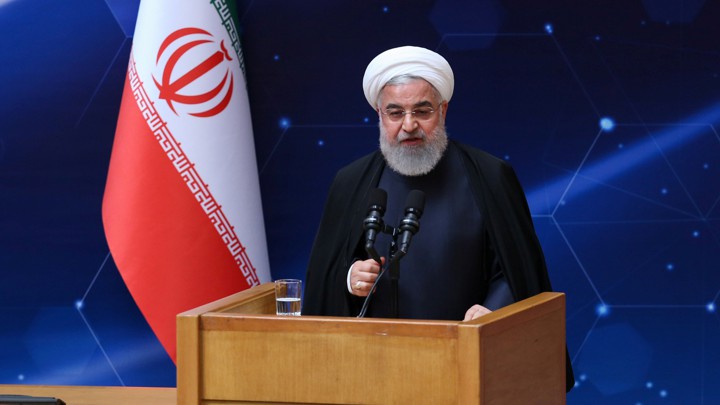Iran distances itself further from nuclear deal, alarming Russia, France
Dubai (Reuters) – Iran has stepped up activity at its underground Fordow nuclear plant, state TV said on Wednesday, a move France said showed for the first time that Tehran explicitly planned to quit a deal with world powers that curbed its disputed nuclear work.
In another development that could also aggravate tensions between Iran and the West, diplomats said Iran briefly held an inspector for the U.N. nuclear watchdog and seized her travel documents, with some describing this as harassment.
Iran said the inspector was prevented from entering the Natanz facility because of a concern she might be carrying “suspicious material”, the semi-official Fars news agency reported. It said screening equipment at Natanz flashed a warning sign when the inspector passed through so her equipment was searched, she was denied entry and the International Atomic Energy Agency was subsequently informed.
The incident involving an IAEA inspector appeared to be the first of its kind since Tehran’s landmark deal with major powers was struck in 2015, imposing restraints on its uranium enrichment programme in return for the lifting of international sanctions.
Iran’s decision to inject uranium gas into centrifuges at Fordow, a move that further distances Iran from the accord, was described by Moscow as extremely alarming. Iran once hid Fordow from the IAEA until its exposure by Western spies in 2009.
“With the presence of inspectors from the International Atomic Energy Agency, Iran started injecting (uranium) gas into centrifuges in Fordow,” TV reported.
A central aim of the agreement was to extend the time the Islamic Republic would need to assemble a nuclear weapon, if it chose to do so, to a year from about 2-3 months. Iran has repeatedly denied any such intention.
The 2015 deal bans Fordow from producing nuclear material. But, with feedstock gas entering its centrifuges, the facility – built inside a mountain – will move from the permitted status of research plant to being an active nuclear site.
A spokesman for Iran’s Atomic Energy Organization, Behrouz Kamalvandi, told state TV later that the injection of uranium gas would start at midnight (2030 GMT). He said the centrifuges there would enrich uranium up to 4.5% fissile purity. Ninety percent purity is required for bomb-grade fuel.
President Hassan Rouhani, an architect of the 2015 deal, blamed Washington for Iran’s rolling back of its commitments, saying Fordow would soon fully resume uranium enrichment work.
“Iran’s fourth step in reducing its commitments under the JCPOA (the 2015 nuclear deal) by injecting gas to 1,044 centrifuges begins today. Thanks to U.S. policy and its allies, Fordow will soon be back to full operation,” Rouhani tweeted.
Last year, U.S. President Donald Trump exited the deal, saying it was flawed to Iran’s advantage. Washington has since renewed and intensified sanctions on Iran, slashing its economically vital crude oil sales by more than 80%.



